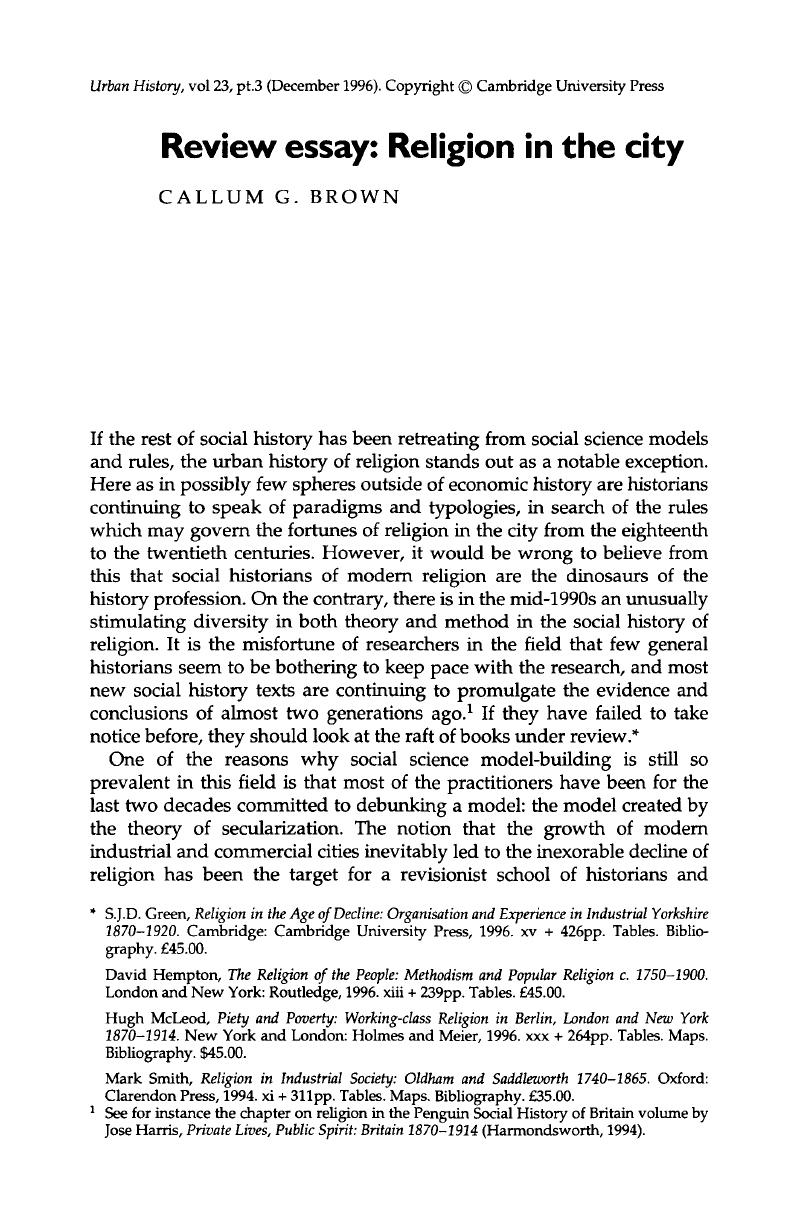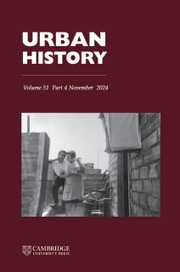Article contents
Abstract

- Type
- Review Article
- Information
- Copyright
- Copyright © Cambridge University Press 1996
References
1 See for instance the chapter on religion in the Penguin Social History of Britain volume by Harris, Jose, Private Lives, Public Spirit: Britain 1870–1914 (Harmondsworth, 1994)Google Scholar.
2 Cox, J., The English Churches in a Secular Society: Lambeth 1870–1930 (New York, 1982)Google Scholar.
3 Two significant collections of articles on secularization and cities are Bruce, S. (ed.), Religion and Modernization: Sociologists and Historians Debate the Secularization Thesis (Oxford, 1992)Google Scholar, and McLeod, H. (ed.), European Religion in the Age of Great Cities 1830–1930 (London, 1995)Google Scholar.
4 Wickham, E.R., Church and People in an Industrial City (London, 1969 ed.), 14Google Scholar. For a recent reassessment of the Wickham thesis, see Morris, J., ‘Church and people thirty years on: a historical critique’, Theology, 94 (1991)CrossRefGoogle Scholar.
5 Thompson, E.P., The Making of the English Working Class (Harmondsworth, 1968 ed.)Google Scholar; see also Hobsbawm, E., ‘Religion and the rise of socialism’, Marxist Perspectives, 1 (1978)Google Scholar.
6 Foster, J., Class Struggle and the Industrial Revolution (London, 1974)Google Scholar; Joyce, P., Work, Society and Politics: The Culture of the Factory in Later Victorian England (Brighton, 1980)Google Scholar.
7 Yeo, S., Religion and Voluntary Organisations in Crisis (London, 1976)Google Scholar.
8 Joyce, Work, Society and Politics.
9 S. Williams, ‘Urban popular religion and the rites of passage’, in McLeod, Great Cities; Williams, , ‘The problem of belief: the place of oral history in the study of popular religion’, Oral History, 24 (1996)Google Scholar.
10 See Crawford, P., Women and Religion in England 1500–1720 (London, 1993), 204–8Google Scholar; and Fletcher, A., Gender, Sex and Subordination in England 1500–1800 (New Haven and London, 1995), 347–63Google Scholar.
11 H. McLeod, ‘Religion in the city', Urban History Yearbook (1978), 19.
- 2
- Cited by


